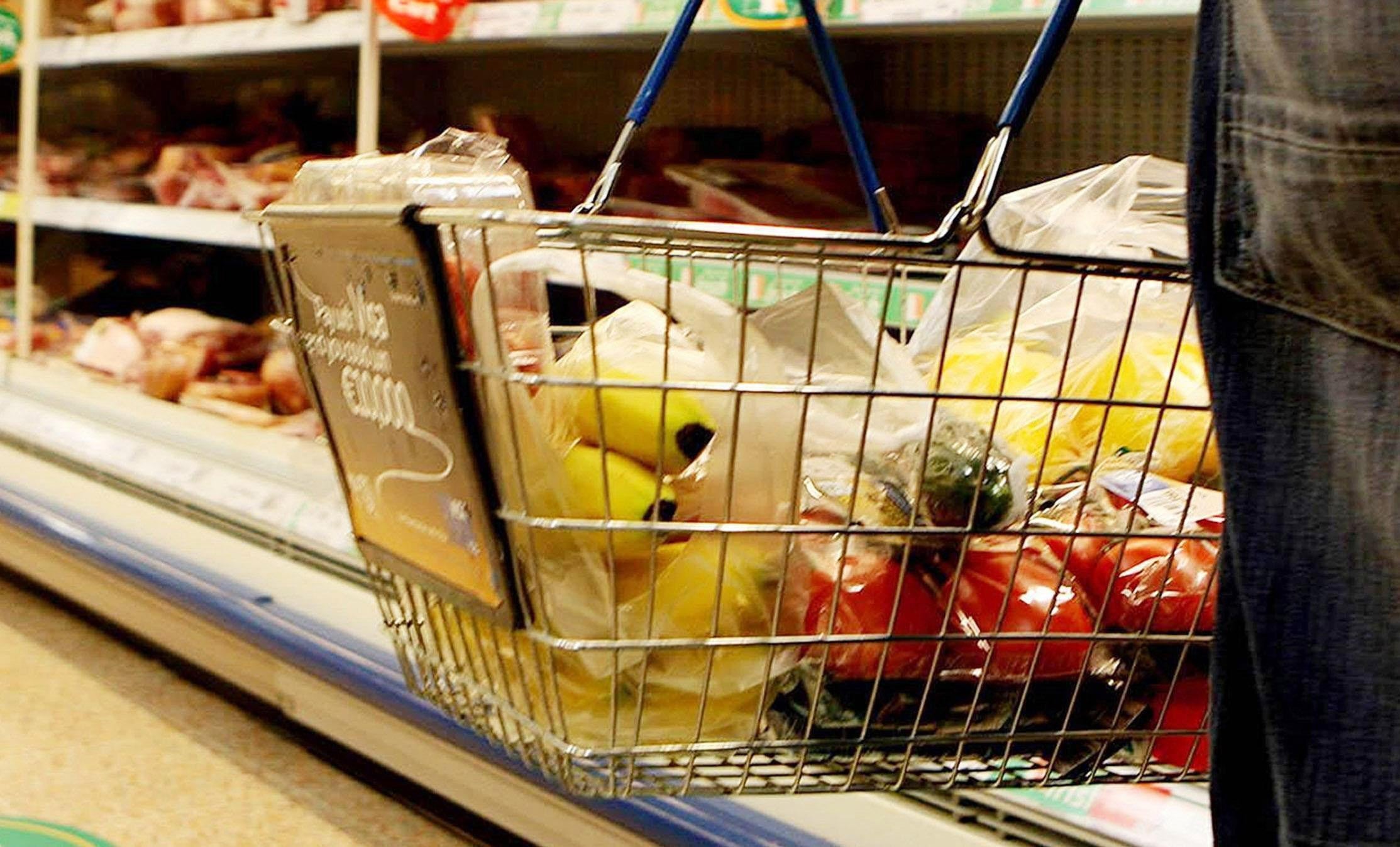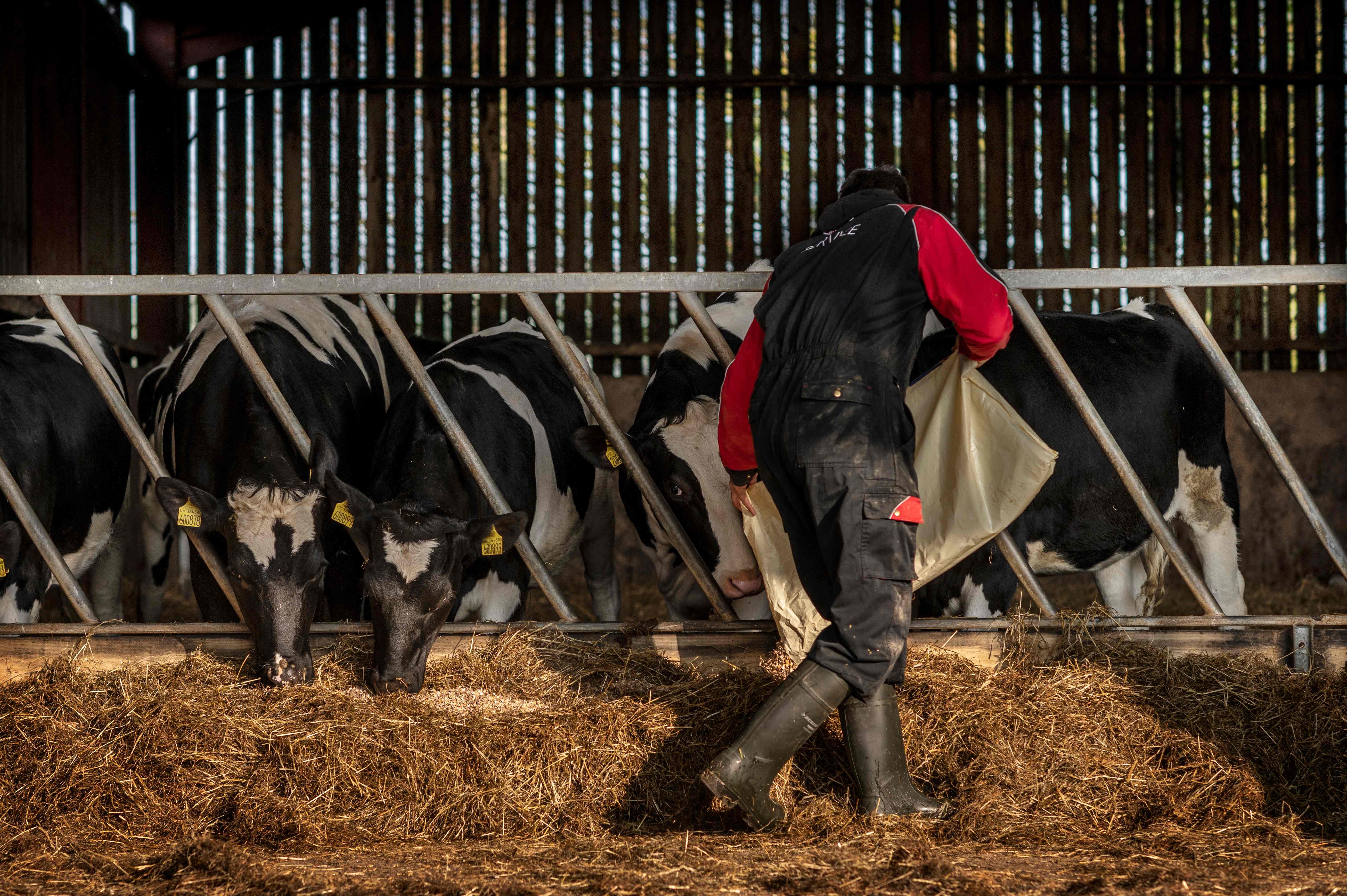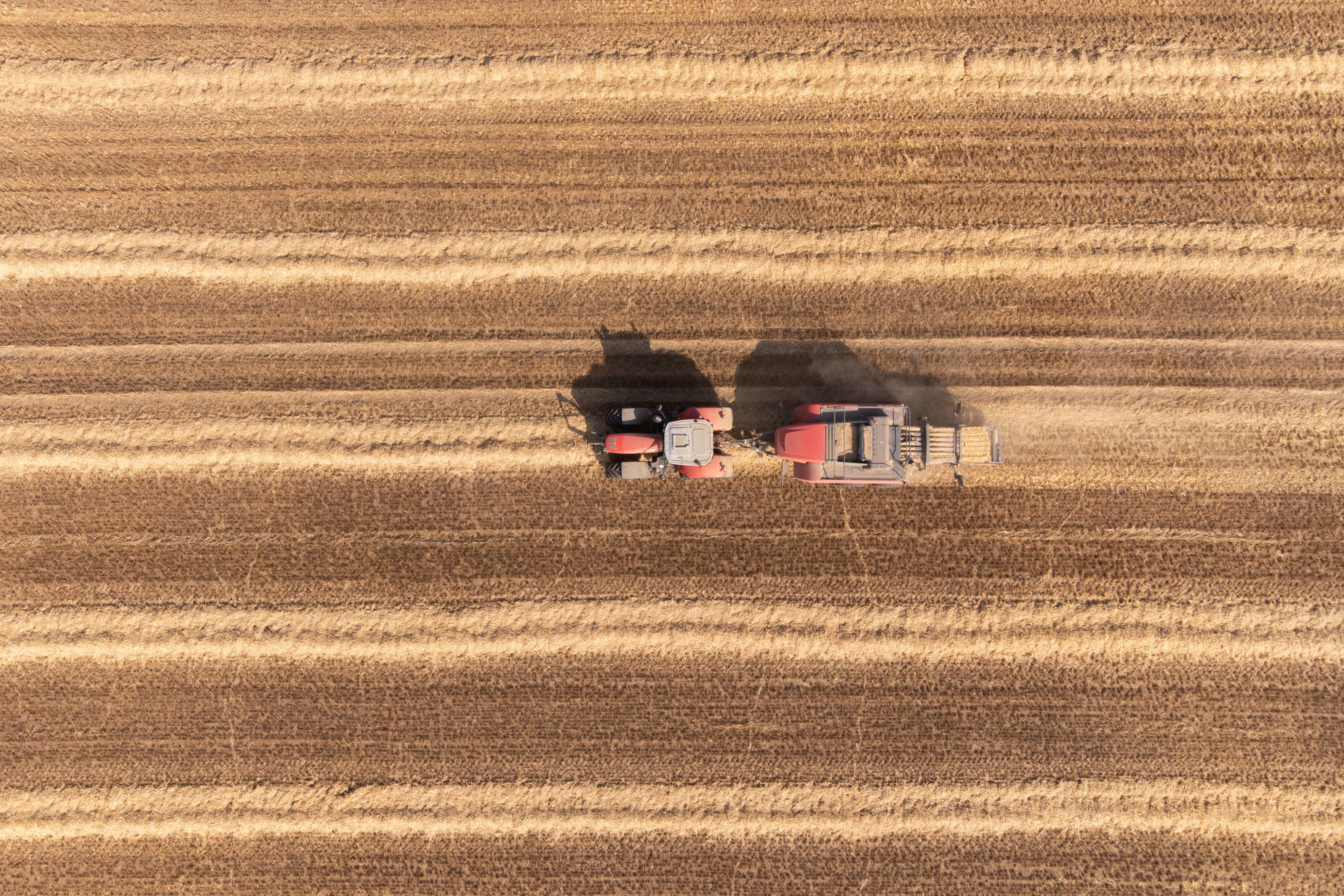Food prices to surge further as farmers ditch fertiliser due to soaring costs
Warning of ‘major crisis’ in British agriculture after sales of vital fertilisers plunge by more than a third

UK shoppers have been warned they face a further surge in food prices as a fivefold increase in fertiliser costs puts the nation’s food production under increasing strain.
Figures obtained by The Independent show that sales of fertiliser plunged by more than a third last month, prompting fears of a fall in crop yields that threatens to push up the price of dairy, lamb, beef and wheat.
The latest data will add to fears about rocketing levels of food poverty in the UK after research suggested that 2 million people were skipping meals because a “catastrophic” cost of living crisis meant they could no longer afford to eat every day.
Official figures show food prices jumped 5.9 per cent in the 12 months to March, almost double the 3.1 per cent uplift in state benefit payments.
Farmers also warned they will be forced into culling their herds this winter if lower application of fertiliser means there is a shortage of grass for animal feed.
Producers who make up 95 per cent of the UK’s fertiliser supplies reported that their sales were down drastically this year as cash-strapped farmers held off buying due to high prices.
A tonne of ammonium nitrate fertiliser peaked at £1,000 in recent weeks, up from a little over £200 in June last year. Fertiliser prices are closely linked to the cost of gas which has jumped to record highs in the wake of Russia’s invasion of Ukraine.
The worst affected fertiliser suppliers saw demand down by 70 per cent last month while even the best performers reported a 25 per cent dip in sales, according to the Agricultural Industries Confederation (AIC).
The trade body said it “conservatively” estimated that sales across the industry were down 35 per cent in April, which is the most important month for fertiliser application in the UK. Around half of the year’s expected supply of fertiliser remains unsold, even though the planting season is almost over, the AIC said.

Farmers are now left hoping that favourable weather can make up for lower fertiliser usage. Others are gambling that gas prices will fall, making fertiliser more affordable. However, market prices suggest prices will be higher this winter.
Jo Gilbertson, sector lead at the AIC, said the situation was “very disconcerting”.
“We normally see peak demand in April. This is uncharted territory for us. Manufacturers can’t keep making [fertiliser] if there are no buyers,” he said.
He urged the government to give confidence that it will be worthwhile producing and buying fertiliser at current high prices but said there was a “fixation from ministers that market forces will fix things”.
“It’s political dogma,” he added.
Grass production for livestock is thought to be under the most immediate threat. Dairy and beef farmers would normally apply fertiliser in April to make grass for feed but many have decided not to and are gambling on favourable weather to ensure decent yields.
That could mean lower production of milk and beef said Jack Watts, agri-food policy manager at the National Farmers’ Union (NFU).
He warned “it is inevitable that we will continue to see some inflation in in some key food products”.
The government’s failure to provide clarity on the post-Brexit subsidy regime had compounded problems by increasing the uncertainty farmers face, Mr Watts said.
The Agriculture and Horticulture Development Board (AHDB) estimates that higher prices for fertiliser, and therefore animal feed, will lead to a 5 per cent reduction in the UK dairy herd this winter.
That implies a rise in farm gate milk prices, said David Eudall, an economist at the AHDB. “Some costs can be absorbed but I expect an increase in a lot of food prices is coming,” he said.
“Less application of fertiliser now in the spring will inevitably impact on production.”

Arable farmers are expected to begin being more severely impacted this winter, when supplies of fertiliser built up last year are fully depleted. That would risk pushing up wheat prices beyond current record levels.
Matt Culley, an arable farmer based in the southeast of England, said he had been forced to cut back fertiliser usage by around 25 per cent to reduce the risk that he will lose money on this year’s crop.
He called on government to provide certainty on gas prices and transparency on the cost of fertiliser. While the prices farmers can charge for wheat and other agricultural commodities are visible months into the future, the amount they must pay for fertiliser is not.
“At the moment, I have to gamble on what the price of fertiliser will be next year when I only have visibility of the price right now. That price can change on a daily or weekly basis,” said Mr Culley.
“You are taking a huge gamble with your business. We shouldn’t have to do that.”
He warned of a large drop-off in yields of arable crops next year at a time when existing stocks of grains and fertiliser will be depleted.
“The potential for all of this production to fall off is massive,” he said. “Things are bad this year but next year will be worse. We are going into it without any resilience.”
Tim Lang, professor of food security at City University, said the UK now had a “major crisis” in its agricultural industries.
“It’s a symbol of a wider crisis of energy prices that’s affecting millions of people.
“We have rocketing food poverty and George Eustace, the secretary of state, is just blithely not interested. It’s astonishing.”
“What we are seeing is the vulnerabilities of a fossil fuel-dependent food economy being totally exposed.”
The Department for Environment, Food and Rural Affairs (Defra) declined to comment.
Join our commenting forum
Join thought-provoking conversations, follow other Independent readers and see their replies
Comments
Bookmark popover
Removed from bookmarks